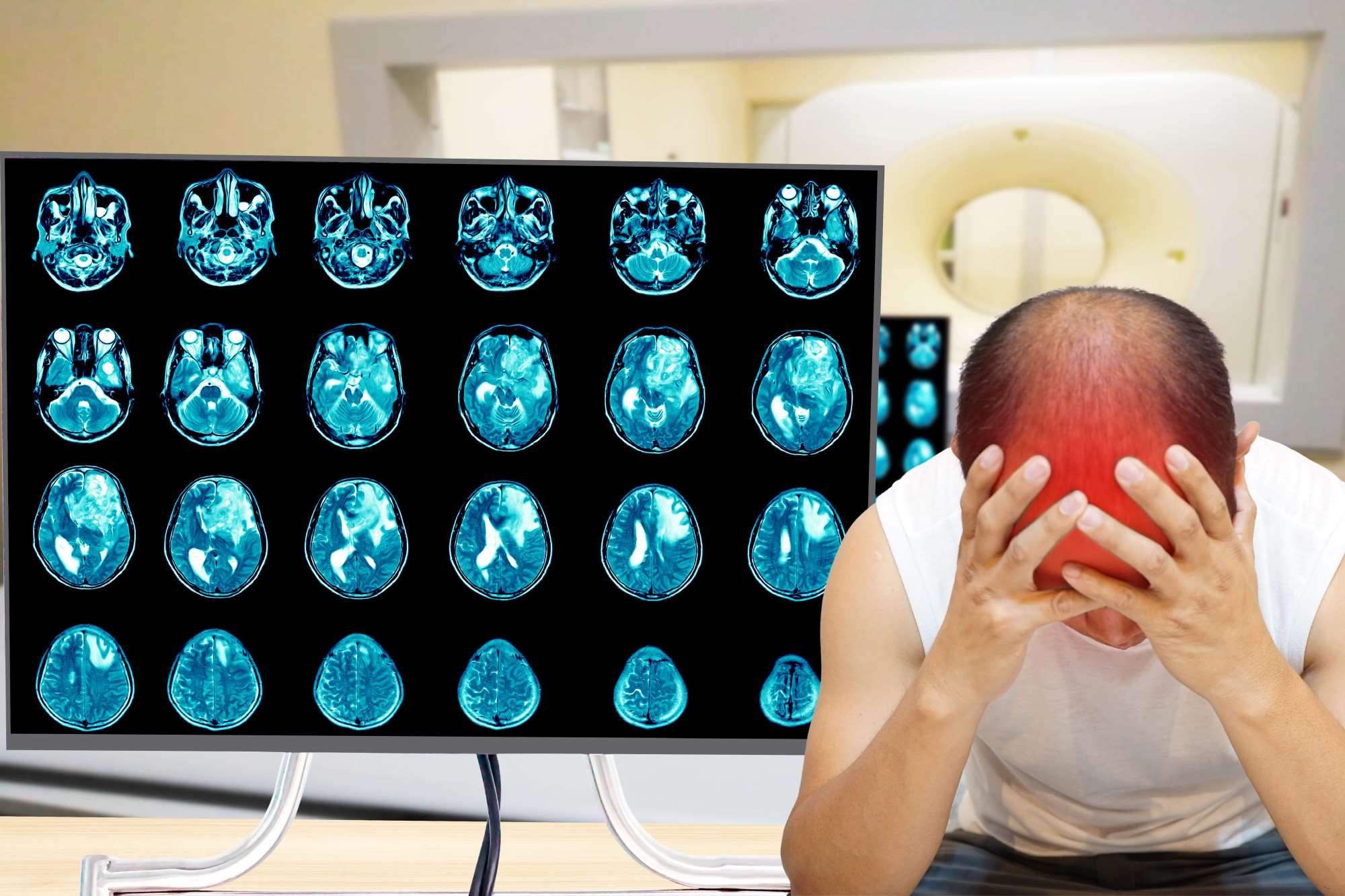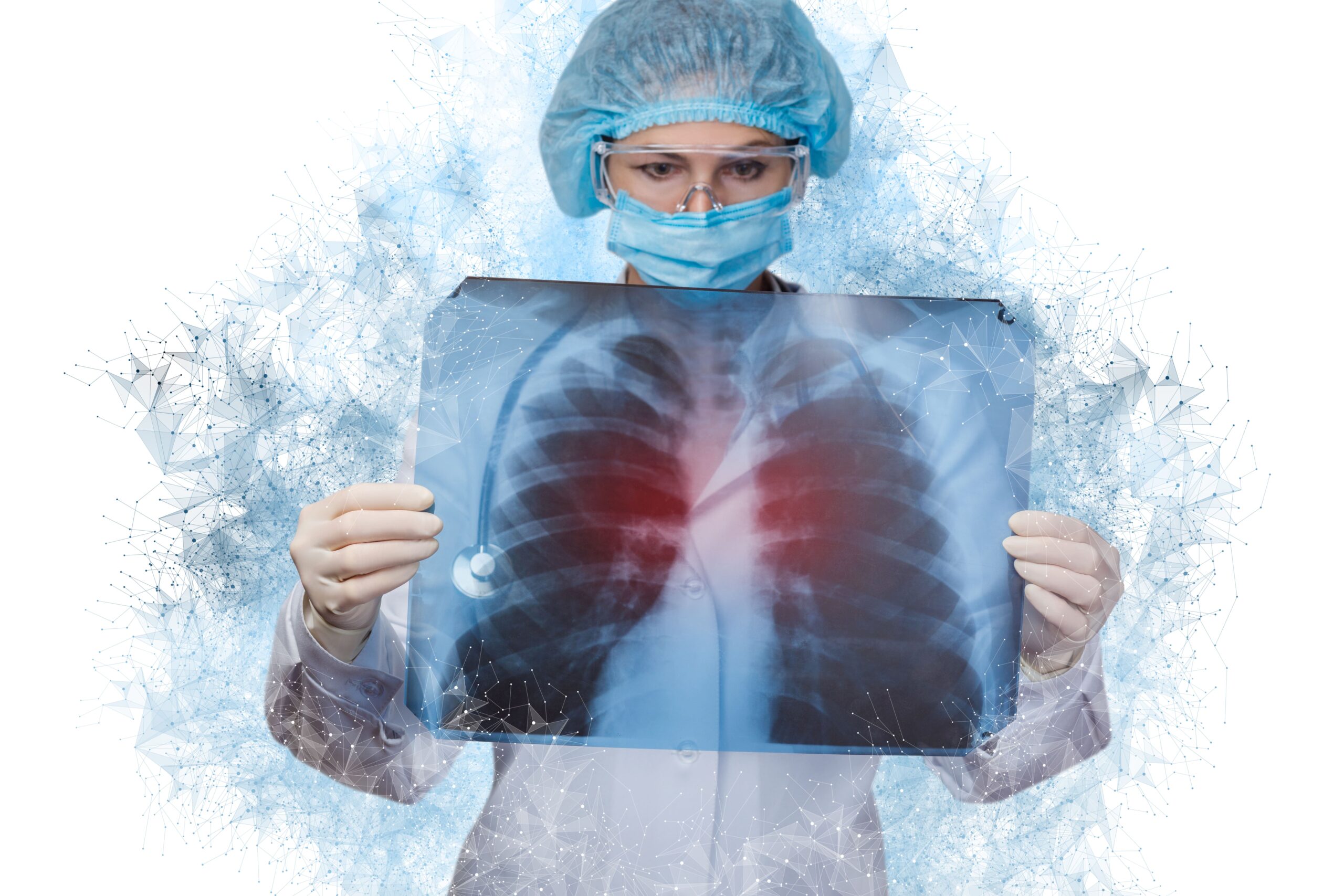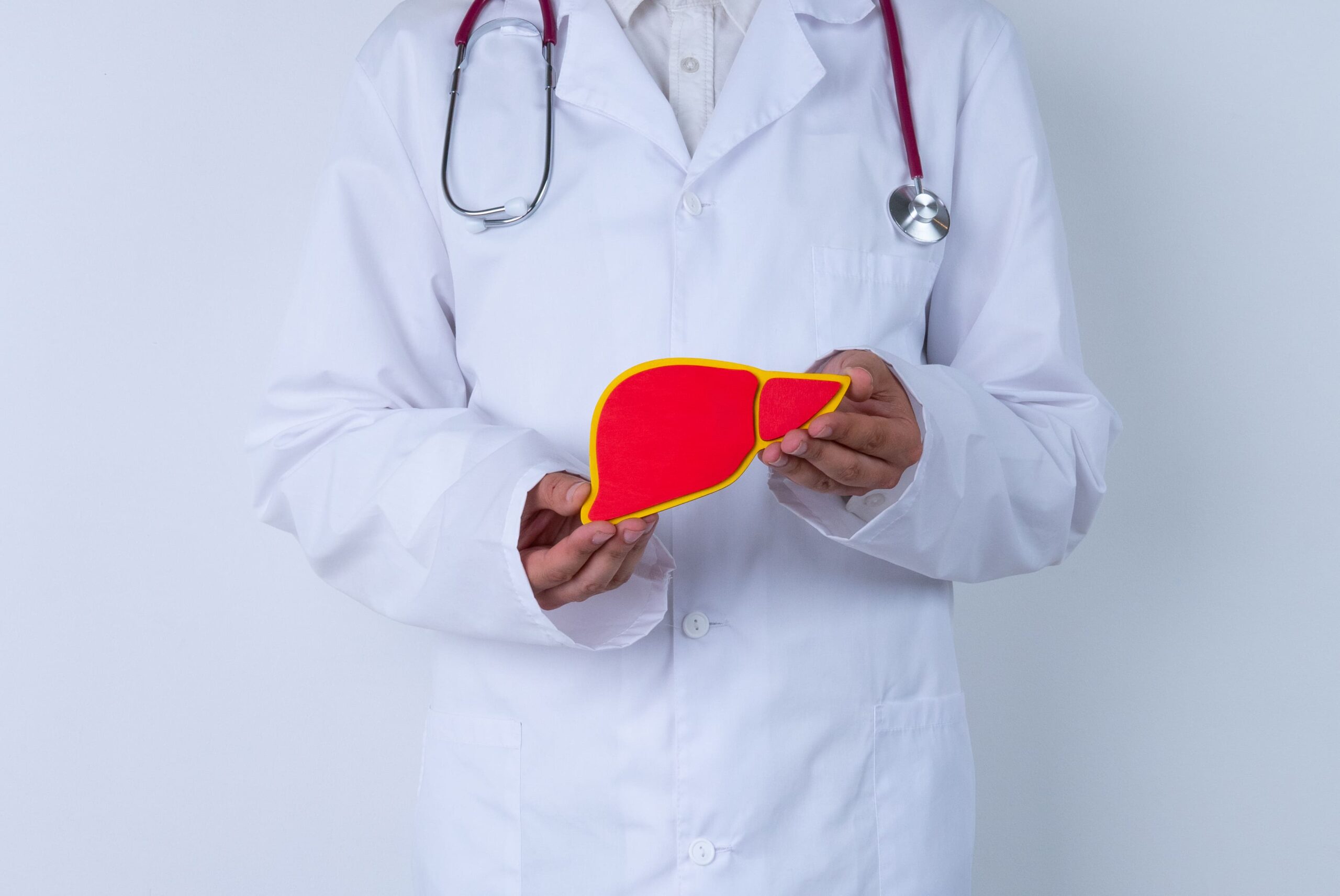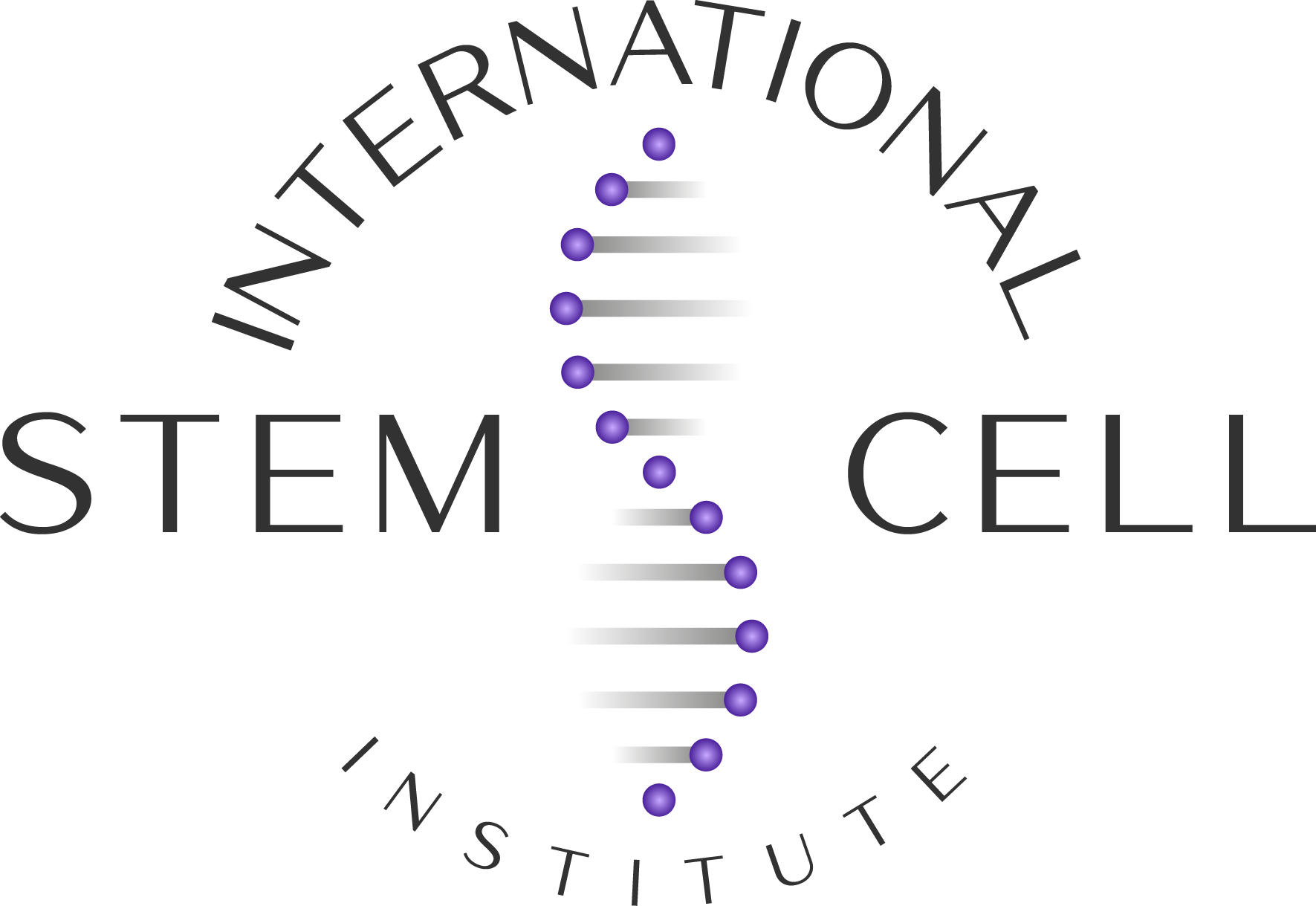Traumatic Brain Injury (TBI)
Traumatic Brain Injury (TBI) remains a significant medical challenge in the United States and globally. It’s estimated that approximately 2.8 million people in the U.S. experience a TBI each year, leading to a range of long-term effects and complications, including cognitive impairment, physical disabilities, and emotional disturbances. Traditional treatments have focused more on managing symptoms rather than addressing the underlying causes of the damage.

The Role of Mesenchymal Stem Cells from Wharton’s Jelly (MSCWJ) in TBI Treatment
- Anti-Inflammatory Action
- Neuroregeneration
- Immunomodulation
They can reduce inflammation in the brain, which is a common consequence of TBI.
MSCWJ has the potential to stimulate the repair and regeneration of neural tissue.
These cells can modulate the immune system, potentially reducing the autoimmune reactions that can exacerbate TBI.
The regenerative capabilities of MSCWJ offer a novel approach to TBI, moving beyond symptom management to potentially reverse some of the damage caused by the injury.
Dr. Leonardo Gonzalez, based in Bogota, Colombia, is pioneering the application of MSCWJ for TBI with a distinctive methodology. Recognizing the limitations imposed by U.S. regulations on stem cell treatments, Dr. Gonzalez has established his practice in Colombia, where he can fully harness the potential of MSCWJ.
His approach is distinguished by:
1. Precision Delivery: Utilizing advanced imaging technologies like CT scans, fluoroscopy, and cath lab techniques, Dr. Gonzalez can deliver MSCWJ directly to the affected areas in the brain. This precision targeting enhances the effectiveness of the treatment.
2. Customized Treatment Plans: Each patient’s condition is unique, and so are the treatment plans devised by Dr. Gonzalez and his team. This personalized approach ensures that patients receive the most appropriate and effective treatment.
3. Collaborative Care: Dr. Gonzalez works closely with a team of specialists, including interventional radiologists and cardiologists, to provide comprehensive care.
Impact and Statistics
The application of MSCWJ in TBI represents a major advancement in regenerative medicine. Studies and clinical trials are increasingly supporting the efficacy of stem cell therapies in improving outcomes for
TBI patients. With millions affected by brain injuries annually, the potential impact of these treatments is immense.
Emphysema
Emphysema, a chronic and debilitating lung condition, is part of a group of diseases known as chronic obstructive pulmonary disease (COPD). It is characterized by damage to the alveoli (air sacs) in the lungs, leading to breathing difficulties. According to the American Lung Association, COPD is the fourth leading cause of death in the United States, affecting millions of Americans. Emphysema specifically results in over 3.5 million annual diagnoses, profoundly impacting patients’ quality of life.
MSCWJ therapy offers a potential regenerative solution to emphysema by promoting the repair and regeneration of lung tissue, potentially reversing some of the damage caused by the disease.

How MSCWJ Can Help Treat Emphysema:
- Regenerative Properties
- Anti-Inflammatory Action
- Fibrosis Reduction
MSCWJ possess the ability to differentiate into various types of cells, including those that can contribute to lung tissue repair. This can potentially help in restoring the function of damaged alveoli.
Emphysema involves chronic inflammation in the lungs. MSCWJ can modulate the immune system and reduce inflammation, which is critical in halting the progression of the disease.
MSCWJ may help in reducing fibrosis (scarring) in the lungs, which is a hallmark of emphysema. This can improve lung function and enhance patients’ breathing capacity.
Dr. Gonzalez distinguishes himself through his innovative delivery methods for MSCWJ. Unlike conventional treatments, he utilizes advanced image-guided techniques, such as CT-guided procedures, fluoroscopy, catheterization laboratory techniques, or intravenous infusions. These methods allow for precise delivery of stem cells directly to the affected lung tissues, ensuring maximum efficacy of the treatment.
Why Bogota, Colombia?
Due to stringent regulations surrounding stem cell use in the United States, Dr. Gonzalez has established his practice in Bogota, Colombia. This location allows him to offer these advanced treatments without the regulatory limitations faced in the U.S., while still providing top-tier medical care.
The Goal: Treating the Cause, Not Just the Symptom
Dr. Gonzalez’s philosophy centers around treating the underlying causes of diseases like emphysema, rather than just managing symptoms. His approach aims to offer a long-term solution that enhances the body’s natural healing processes.
Contact us today to learn more about how
Dr. Gonzalez's
unique approach to stem cell therapy
can pave the way for healing and recovery.
Pulmonary Fibrosis
Pulmonary Fibrosis is a challenging respiratory condition, characterized by the thickening and scarring (fibrosis) of lung tissue, making it difficult to breathe and get enough oxygen into the bloodstream. In the United States, this disease affects a significant population, with approximately 100,000 individuals diagnosed each year. As Pulmonary Fibrosis progresses, it severely impacts the quality of life and can lead to life-threatening complications.

The Role of MSCWJ in Treating Pulmonary Fibrosis
Recent scientific advancements have shed light on the potential of Mesenchymal Stem Cells derived from Wharton’s Jelly (MSCWJ) in treating Pulmonary Fibrosis. MSCWJ possesses unique anti-inflammatory and regenerative properties, making them a promising candidate for lung repair and regeneration.
Dr. Leonardo Gonzalez’s Unique Approach
Dr. Gonzalez, located in Bogota, Colombia, due to stringent stem cell regulations in the USA, stands out in the field of regenerative medicine for his specialized approach to treating Pulmonary Fibrosis with MSCWJ.
Innovations in Delivery:
- Image-Guided Precision
- Targeted Treatment
- IV Infusion Options
Dr. Gonzalez utilizes cutting-edge imaging technologies such as CT scans, fluoroscopy, and catheter lab procedures for precise delivery of MSCWJ.
This approach ensures that MSCWJ are administered exactly where they are needed, maximizing their effectiveness in regenerating damaged lung tissue.
For systemic treatment benefits, IV infusions of MSCWJ are also employed, catering to the individual needs of the patient.
The Promise of MSCWJ Treatment:
· Reduced Inflammation: MSCWJ can significantly decrease the inflammation in the lungs, a primary factor in Pulmonary Fibrosis progression.
· Regeneration of Lung Tissue: The potential to regenerate damaged lung tissue offers a groundbreaking advancement in treating this condition.
· Improved Quality of Life: Patients treated with MSCWJ have shown improvements in breathing, increased oxygen levels, and overall enhanced life quality.
Join the Path to Healing with Dr. Gonzalez
If you or a loved one is battling Pulmonary Fibrosis, we invite you to explore the transformative potential of MSCWJ therapy under the expert guidance of Dr. Leonardo Gonzalez. Our approach is not just about treating symptoms; it’s about addressing the root cause with precision and care.
Your Journey to Better Health Awaits:
· Comprehensive Care in Colombia: Experience world-class treatment in Bogota, Colombia, with a team dedicated to your recovery.
· Tailored Treatments: Each therapy session is customized using advanced imaging techniques to ensure optimal delivery of MSCWJ.
· A Focus on the Cause, Not Just Symptoms: Our goal is to halt the progression of Pulmonary Fibrosis and promote lung regeneration, offering you a future of improved health and vitality.
Chronic obstructive pulmonary disease (COPD)
Chronic obstructive pulmonary disease is one of the most common medical conditions worldwide: research results show that nearly 5% of the population suffers from COPD. It affects men and woman almost equally. The most frequent causes of obstructive lung disease are asthma, varied conditions of bronchitis, cystic fibrosis, and emphysema that lead to the degeneration or damage to tissue over time. The main cause of this disease is tobacco smoking: the longer someone smokes, the more likely they are to develop COPD.

Nonsmokers can get emphysema (a common type of chronic obstructive lung disease) if they lack the alpha-1 antitrypsin protein, but this case is rare. Tens of millions of people suffer from lung disease due to smoking, infections or genetic abnormalities. Lung disease can also occur due to malfunction in other systems like congestive heart failure. Risk factors for chronic obstructive pulmonary disease also include the frequent use of cooking gas without proper ventilation, exposure to particular workplace fumes, pollution and secondhand smoke.
- New COPD stem cell treatments
- UCMSCs have the potential to create oxygen supplies
Today, new COPD stem cell treatments and advances in research are giving new hope to people affected by this disease. The COPD treatments for current Stem Cell Clinical Studies are being studied for their efficacy in improving the complications in patients with Chronic Obstructive Pulmonary Disease, through the use of stem cells. These stem cell COPD treatments may help patients who don’t respond to typical drug treatment.
Patients may experience improvements in function and quality of life parameters. Recent studies have shown that Umbilical cord-derived mesenchymal stem cells (UCMSCs), reduce inflammation in the airway alveoli in response to cigarette smoke exposure or other airway irritants, and also decreased lung cell death. UCMSCs also have the potential to stimulate the formation of new capillaries which may lead to tissue repair and oxygen delivery. Mesenchymal stem cells have shown the ability to suppress auto reactive T-cells, inhibit macrophage activation and autoimmune response which may help to improve lung functionality in COPD patients. Improvement in lung capacity can be measured by exercise capacity.
Contrary to other Stem Cell treatments based on autologous transplant, where the stem cells are as old as the patient’s age and carry all the information accumulated through their life, at the International Stem Cell Institute®, we use donor umbilical cord-derived mesenchymal stem cells (MSCs) instead of bone marrow or fat tissue-derived. In our laboratory, umbilical cord MSCs can undergo approximately twice the number of “doublings” as their adult-derived bone marrow or fat tissue counterparts. After a few days of cell culturing, the concentrate of mesenchymal stem cells are implanted into the patient by angiography under local anesthesia and/or intravenously (Combination) depending upon each patient’s individual medical needs.
We treat our COPD patients with a specialized protocol to implant the UCMSCs directly into the lungs via an Intra-arterial (IA) injection, which represents an avenue for minimally invasive delivery of stem cells to the lungs. The procedure consists of an image guided IA injection of a single cell suspension of UCMSCs injected via a micro needle inserted into the femoral vein and then guided via Fluoroscopy scanning through the heart and into each pulmonary artery where 50% of the UCMSCs concentrate is implanted into the right pulmonary artery and 50% into the left. The angiography procedure takes about 90 minutes. Afterwards, the patient will spend 2 or 3 hours in the recovery room to ensure that the entry site is not bleeding.
IV – The UCMSCs concentrate is implanted directly into the bloodstream via intravenous injection. This procedure is very straightforward, quick and safe. Patients may leave the clinic very soon after the IV injection is complete. Sometime the doctors at the International Stem Cell Institute® decide to implement potential ways to directly target the conditions and complications, and also as maintenance therapy. These procedures consist of different ways to deliver the highest amount of activated stem cells to the areas patients need them most.
As potential therapy for COPD, there is a special way they can be administered:
- Stem Cell Nebulization – A process in which the stem cells are broken down into a nebulized state so that they can be inhaled by the patient to directly target the lungs.
If you suffer from chronic obstructive pulmonary disease (COPD) and have tried multiple treatments without getting relief, schedule a consultation with the experts at the International Stem Cell Institute.
At The International Stem Cell Institute, we believe in a
future where every breath is easier
Long COVID Effects
Long COVID affects millions worldwide, manifesting in symptoms like fatigue, brain fog, shortness of breath, and joint pain. These symptoms not only affect physical health but also impact mental well-being and quality of life. Our mission at ISCI is to offer hope and effective treatment options to those struggling with these persistent effects.

Our Cutting-Edge Approach to Treating Long COVID
Leveraging the potential of mesenchymal stem cells from Wharton’s Jelly (MSCWJ), we target the underlying causes of Long COVID symptoms. MSCWJ therapy offers a revolutionary approach with its regenerative properties, anti-inflammatory effects, and immunomodulatory capabilities
Tailored Treatments for Individual Needs
Every patient’s journey with Long COVID is unique. That’s why our treatments at ISCI are personalized. We utilize advanced diagnostics and imaging techniques to ensure targeted and effective therapy, addressing each patient’s specific symptoms and health concerns.
Why Choose ISCI for Long COVID Treatment?
- Expertise of Dr. Leonardo Gonzalez in stem cell therapy
- Personalized treatment plans
- State-of-the-art facilities in Bogota, Colombia
- Comprehensive approach to health and wellness
- Compassionate and patient-centric care
Kidney - Renal Failure
At the forefront of innovative treatments for renal failure is the use of Mesenchymal Stem Cells derived from Wharton’s Jelly (MSCWJ). These stem cells have shown tremendous potential in regenerative medicine, particularly in treating renal failure. MSCWJ possesses unique properties that enable them to regenerate damaged kidney tissues and improve kidney function. They aid in modulating the immune response, reducing inflammation, and promoting the repair of renal tissues.

Renal failure, commonly known as kidney failure, represents a significant health challenge, affecting millions of individuals worldwide. In the United States alone, kidney diseases are the ninth leading cause of death, with chronic kidney disease (CKD) affecting approximately 37 million people. This condition is particularly concerning as it often goes undiagnosed and untreated until it becomes severe.
Dr. Leonardo Gonzalez’s Distinctive Approach
-
Dr. Leonardo Gonzalez pioneers renal failure treatment with MSCWJ
-
His unique approach stands out in regenerative medicine.
-
Advanced imaging-guided techniques like CT-guided procedures, fluoroscopy, and catheter lab interventions are employed.
-
Precise delivery of MSCWJ directly to affected renal tissues is ensured.
-
This targeted approach maximizes treatment effectiveness and minimizes potential side effects.
Dr. Gonzalez’s procedure involves extracting MSCWJ and administering them through either IV infusion or direct injection using imaging-guided techniques. This ensures that these potent cells are delivered exactly where they are needed, maximizing their regenerative capabilities. By using CT scans, fluoroscopy, or catheterization, Dr. Gonzalez can visualize the kidney’s structure in real-time, ensuring that the stem cells are precisely targeted to the damaged areas.
The Impact and Success Rate
Patients treated with MSCWJ for renal failure have shown significant improvements in kidney function, with a reduction in the severity of their symptoms. This treatment has the potential to slow down the progression of renal failure, offer relief from symptoms, and improve the overall quality of life.
Stop just managing symptoms
get to the root cause
Liver Failure
At The International Stem Cell Institute under Dr. Leonardo Gonzalez’s guidance, we are pioneering the use of mesenchymal stem cells from Wharton’s Jelly (MSCWJ) to treat liver failure. MSCWJ offers a groundbreaking approach, particularly for those suffering from liver diseases where conventional treatments have limited effectiveness.

Liver failure is a critical condition where the liver loses its ability to function properly. In America, liver disease affects millions, with the Centers for Disease Control and Prevention reporting that in 2019, 4.5 million adults were diagnosed with liver disease. Chronic liver diseases, such as cirrhosis and hepatitis, are among the leading causes of liver failure. This condition not only poses a severe health risk but also burdens the healthcare system significantly.
How MSCWJ Helps in Treating Liver Failure
- Regenerative Properties
- Anti-inflammatory Effects
- Fibrosis Reduction
- Immunomodulation
MSCWJ has the remarkable ability to differentiate into various cell types, including hepatocytes (liver cells), potentially aiding in the regeneration of damaged liver tissue.
These cells can modulate the immune response and reduce inflammation, a critical factor in liver diseases like hepatitis.
MSCWJ may help reduce fibrosis, a significant issue in conditions like cirrhosis, enhancing liver function and slowing disease progression.
By regulating the immune system, MSCWJ can address autoimmune liver diseases, reducing the immune system’s harmful effects on the liver.
Revolutionary Treatment with MSCWJ
At The International Stem Cell Institute under Dr. Leonardo Gonzalez’s guidance, we are pioneering the use of mesenchymal stem cells from Wharton’s Jelly (MSCWJ) to treat liver failure. MSCWJ offers a groundbreaking approach, particularly for those suffering from liver diseases where conventional treatments have limited effectiveness.
Dr. Leonardo Gonzalez’s Unique Approach
Located in Bogota, Colombia, due to the restricted regulation of stem cells in the USA, Dr. Gonzalez offers a unique and targeted approach to treating liver failure with MSCWJ:
· Image-Guided Delivery: Utilizing advanced imaging techniques such as CT-guided, fluoroscopy, and catheter lab procedures, Dr. Gonzalez ensures that MSCWJ is delivered precisely to the affected liver tissues.
· Tailored Treatment: Each treatment is customized, considering the patient’s specific condition and needs, maximizing the therapeutic potential of MSCWJ.
· IV Infusion: For systemic benefits, MSCWJ can also be administered via IV infusion, aiding in overall liver health and function.
The Difference Dr. Gonzalez Makes
Dr. Gonzalez is not just treating symptoms; he’s addressing the root causes of liver failure. His goal is to offer patients a chance at a healthier future by restoring liver function and improving quality of life. This patient-centric approach, combined with cutting-edge technology, sets him apart in the field of regenerative medicine.
Join the Journey to Better Health
2023 © Mercadeo Salud. All rights reserved.

